We have lost one of the great cultural catalysts of our time, a brilliant provocateur, a different kind of artist. Malcolm McLaren was a dear friend, who will be painfully missed – we spent, for example, Millennium Eve together with a few friends in France. When Malcolm hit on the “serious joke” of running for Mayor of London in 2000, he roped me into being his agent. It was a lost cause, of course, but at times it was a surreal and often comic adventure. But then one of his favourite sayings was “Any fool can be a benign success, it takes real courage to be a failure”.
He was 64 when he died yesterday, which is no age to die these days. He would often go off radar for a few months in Los Angeles or New York with some scheme or another and I wouldn’t hear from him. This time it was longer than usual. He died of a mesothelioma, a type of cancer, in a clinic in Switzerland and will be buried in Highgate Cemetery. He kept his illness - which was diagnosed in October - quiet and Malcolm was very active until February, said his long-term partner Young Kim, “but then it became very aggressive”.
I would have loved to see him one more time, to tell him how much I appreciated his friendship, and how much I was going to miss him. When I didn’t get any response from a couple of recent emails, I wasn’t unduly worried. But maybe people being sorry for him wasn’t his style.
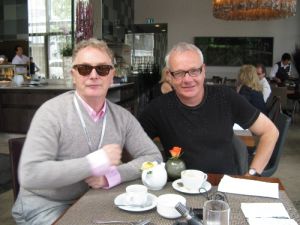 He had many unlikely talents including, for example, being a great wine expert. His first job had been as a 17-year-old wine taster in London. He was a great enthusiast for art, music and, always, ideas. (Right: Malcolm McLaren and Peter Culshaw in Basel in 2008 Photo: Michelle Anslow)
He had many unlikely talents including, for example, being a great wine expert. His first job had been as a 17-year-old wine taster in London. He was a great enthusiast for art, music and, always, ideas. (Right: Malcolm McLaren and Peter Culshaw in Basel in 2008 Photo: Michelle Anslow)
He was, despite his image, often very kind, as well as consistently brilliant and funny and great company. He often helped out in friends' business or personal dilemmas, with usually perceptive advice. He wasn’t shy about claiming how important he was, which actually made a change from the usual British self-effacing style. He was a key figure in fashion and punk, of course, but also, when he got bored of managing others and decided to become a solo artist, his records such as Duck Rock and Fans were visionary takes on hip-hop, South African music (years before Paul Simon) and opera. More to the point, he was fearless. He was always impeccably stylish.
In recent years he was proud of being co-producer of the film Fast Food Nation, and actually managed to reinvent himself as a successful visual artist (although he always saw himself as primarily an artist, anyway). I met him at Art Basel where he was exhibiting in 2008, showing limited editions taken from the introductions of 1970s erotic films, complete with newly-created cut-up soundtracks that mixed, among other things, Joy Division, mambos and phone conversations of Jayne Mansfield. In recent years, he had made award-winning radio documentaries, as well as some easy cash by appearing on reality TV shows including Big Brother: Celebrity Hijack. Naturally he had some hilarious backstage stories. He was supposed to have been working on his autobiography this year, to be entitled "I Will Be So Bad", which would have been a wonderful read. He had signed to do the book years ago, but somehow he was always too busy to spend any time reminiscing, no doubt assuming he would have time when he was older to write it. He was an inspiration and a source of positive energy.
Jon Savage, who wrote England’s Dreaming, the best book on punk, said, "Malcolm was an incredible talent, he was a massive influence on punk and it's a huge loss. Without Malcolm McLaren, there would not have been any British punk. He's one of the rare individuals who had a huge impact on the cultural and social life of this nation."
"I hope he'll be remembered with fondness," he said. "What he did with fashion and music was extraordinary. He was a revolutionary." Mark Borkowski called him "the last revolutionary".
"Malcolm will be sorely missed,” said Young Kim, whom he had found happiness with in the past decade. "He was a great artist who changed the world."
It still seems incredible that he has gone and we won’t be hearing from him again. That voice, full of energy and glorious mischief, has been silenced.
Below is an edited piece I wrote for the Observer Music Monthly a few years back. At the time, he thought he had stumbled on a new form of music called Chip Music which was going to revolutionise the world again. He seemed unperturbed when it didn’t. A couple of things that he rightly objected to at the time have been excised. I compared him to those great cultural catalysts like F.T. Marinetti, Sergei Diaghilev and Andy Warhol.
The impresario and merchant of chaos backstage at the Pritti art gallery in Florence is surrounded by three cute Chinese girls, the Wild Strawberries, who are thrilled to have made their foreign debut at such a fashionable event. With his curly hair and long scarf, the 58-year-old Malcolm McLaren would still be a prime candidate to play the new Dr Who, particularly with his stylish scarves and apparent ability to materialise at different points in space and time.
The Wild Strawberries have played a few numbers selected by McLaren, including a Serge Gainsbourg tune once sung by Brigitte Bardot and a version of Jimi Hendrix's 'Foxy Lady'. In the mix are bits of old video game bleeps, while the big screens surrounding the stage feature graphics from antiquated arcade games. The whole event fizzes with a kind of glamour that would seem equally at home in Italian Vogue or Wired, and the audience, a weird mix of computer nerds, fashionistas and alternative Florentines, seems to love it. For once, the new new thing isn't coming from New York, Los Angeles, Paris or London, but Florence via Beijing. The vibe is anti-corporate, DIY and global with just a touch of high-end gloss - and very Malcolm.
The event has brought together some of the ideas McLaren has been hatching over the past year or so, particularly his recent discovery of 'chip music', which he thinks is the most significant new phenomenon since punk or hip hop, two earlier cultural styles which he pillaged, packaged and propaganised for. 'Chip music' is created by hacking into old video games and using the sounds to create your own, totally new 'folk music for a digital age'. To play this retro-futurist electronic '8-bit punk' music you don't even need an instrument as it can be played on a child's Game Boy.
So far the Wild Strawberries are having a great time on their first trip to Europe. What exactly the girls have got themselves into, though, neither they nor their manager really know. McLaren has decided he wants to release six 'black and fetishistic' vinyl 45s and a comic book, and MTV are at the event, along with representatives from Universal and Mute records. The group could turn out to be massive, or they might not. But that, says Malcolm, isn't the real point.
'There was a teacher at art school who said things to me at 18 that resonate with me to this day,' he tells me. 'He said we were all going to be failures. But at least be a magnificent, flamboyant failure. Failure is a noble pursuit. Any fool can be a benign success. The guy gave me a whole other outlook on the world, a whole other purpose, a different quest.'
Few other figures have had such a galvanising effect on pop culture as McLaren (the columnist Julie Burchill says 'we are all children of Thatcher and McLaren'). His ideas were shaped by his seven years of study at assorted London art schools in his teens and early twenties, and then there was the inspiration of the French Situationists and their slogans such as 'Be Reasonable - Demand the Impossible'. The charge against him through his multifarious escapades has always been that he has placed himself at the centre of his own happenings, exploiting or manipulating others.
'I didn't want to conceptualise like a Damien Hirst with his dead shark,' he says. 'I wanted to work with real living people.' The problem with that, I say, is that people don't like being used. 'I take that into consideration but many bands have been created by people other than the bands themselves. If it's done with excitement and provocation, it has a value. But it's really very simple. It's just a laugh. You're on the shelf. Do you want to come off the shelf and come on an adventure trail. Or stay on the shelf? And when I do a piece of work I can never be sure if it will last five minutes or five years.' Some of his projects, like Duck Rock, with its totally innovative use of hip-hop and Sowetan culture were not just pioneering but have become classics. Others are ephemeral as a evening of Chinese fireworks.
One of the country's top publicists, Mark Borkowski, said to me recently that without McLaren ('one of three geniuses I've met') he would never have got into PR. 'Malcolm proved that hype was art and that the media is a canvas that demands to be shaped.'
McLaren insists that 'the person I most manipulated was myself', and certainly by casting himself as 'The Embezzler' in The Great Rock n'Roll Swindle, the film he made with the Sex Pistols, he created a powerful amoral archetype. It's difficult now to recall the liberating energy that the Pistols stirred up at the time, as well as the humour, before they left disillusioned cynicism and tragedy in their wake.
I have known McLaren quite well for a decade or so and in person he is surprisingly uncynical, rather childlike in his enthusiasm for new ideas, constantly trying to explain a world in which he has always felt himself something of a misfit. He is brilliant, funny, usually charming and very good value.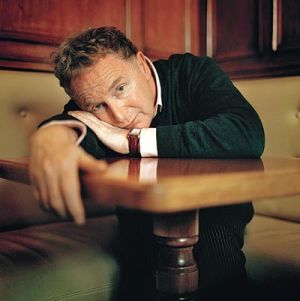 At the start of last year, McLaren played me some demos of what he called 'bastard pop', collages of existing tracks mainly by dead people. Jimi Hendrix with Mick Jagger on vocals; a slinky mambo track with William Burroughs and Jane Russell talking on the phone; the charleston mixed with Poulenc.
At the start of last year, McLaren played me some demos of what he called 'bastard pop', collages of existing tracks mainly by dead people. Jimi Hendrix with Mick Jagger on vocals; a slinky mambo track with William Burroughs and Jane Russell talking on the phone; the charleston mixed with Poulenc.
Whether he pulls off projects or not, McLaren remains admirably buoyant, perhaps because he will willingly reshape history. Even when Johnny Rotten left the Sex Pistols, for instance, he thought the band could continue - indeed: 'The best songs the Sex Pistols recorded were the ones without John,' such as "C'mon Everybody". At least Sid Vicious could actually sing, and he was potentially a much bigger star.'
By last summer he had stumbled on an event that would turn his notion of 'bastard pop' into something 'revolutionary'. According to Malcolm, he was at a party in Zurich when 'a small-label dude caught my attention, rattling on about lo-fi. He soon had me playing phone tag with a clique of "reversible engineers" working illegally in Stockholm. I didn't know what that meant but I was eager to find out.' One of their number, Role Model, worked out how to hack into video game chips and make music 'as though Twiggy were stuck inside Space Invaders'.
McLaren then discovered an 'entire lost tribe of Game Boy musicians' communicating through the internet, a cast of emerging artists from different countries with names such as Lo-Batt, Glomag, Bit Shifter and Adlib Sinner Forks. The attraction for Malcolm was that 'we live in a refined 96-bit digital world where everything has begun to sound the same. This movement is about a return to the roots of the digital culture and an idea of the authentic'.
The trail led to a semi-abandoned factory in Paris, in Ivry-sur-Seine, south of Chinatown, where McLaren insisted I investigate an international gathering of 'chip' musicians in the real - as opposed to the virtual - world. He spoke of this gathering with the same kind of enthusiasm he had when he wandered into a party in the Bronx in the early Eighties dressed in flouncy pirate gear (this was when he was managing Bow Wow Wow) and saw Grandmaster Flash spinning the decks in hip hop's first dawn.
On the top of the factory was, as Malcolm put it, an 'Ali Baba's cave of outdated equipment - a chamber stuffed floor to ceiling with dinosaurian Amigas and Ataris from the early Eighties'. The overall vibe was a little nerdy for McLaren but then, with the likes of Bill Gates, the nerds have taken over the world. And these were geeks with attitude. Nevertheless, for the scene to go global, clearly it would have to be 'sexed up' a bit; and Malcolm was the man to do it. When the Wild Strawberries in Beijing asked McLaren to produce some tracks, he married their thrash guitar sound to the retro soundscapes of his latest enthusiasm and his game plan was up and running.
Throughout McLaren's career the ideas that stream from him have often petered out. But part of the fun is the deals involved. 'For Malcolm, a deal is like a sport,' says the producer Stephen Hague, who worked with him on his 1984 record Fans and more recently on the Wild Strawberries project. Anyone who knows him knows, however, that money is not his primary motivation.
In my experience, McLaren is totally and infectiously sincere in his enthusiasms, and he has persevered with the most unlikely notions, even when the odds are stacked against him. Lynda Obst, then head of Geffen films, says that when McLaren came to pitch an idea for a film called Beauty and the Beast, which mixed up the fairy story and the life of Christian Dior, 'it was the most memorable pitch of my career. It was a performance of stellar quality that I have since discovered was entirely rehearsed, because he later did the same pitch for David Geffen word for word, beat for beat, step for step.'
The film was never made but 'for two hours, his room was his stage. It felt like a movie even though there was no story and no characters, or only the most mythic characters.'
I had the same experience one of the first times I had lunch with Malcolm and he described a Led Zeppelin film he wanted to make focusing on their manager, Peter Grant. In one of the many amazing scenes he described, the band's private jet - crammed with cash from a tour - is surrounded by armed IRS men at Chicago airport. He really thought he would make this one but later told me: 'Peter kept saying he could deliver the band's music, but he couldn't, and then he died. Maybe the band didn't want Grant to become a star.' But he spent a couple of years on that project alone.
The years that McLaren spent in Los Angeles constitute the chapter in his history that hasn't yet been written, but Hollywood was fascinated by him. He was formally employed twice, at CBS and then as a kind of personal ideas man for Steven Spielberg. There was the attempt to turn Stephen Hawking into 'the most brilliant pop star, and have him make love to Chrissie Hynde - a CD-Rom that I tried hard to sell as a bridging between art and science'. He developed such projects as Heavy Metal Surf Nazis ('The Magnificent Seven meets Lord Of The Flies', featuring a gang led by a surfer who was born in the sea and has a magical surfboard) on a six-figure salary. Of LA he says: 'At first it seemed a place to reinvent yourself, but finally I have to admit, its malevolence creeps in through the walls at night, and slowly depressed the hell out of me.'
This is in spite of his affair with the model Lauren Hutton, the beauty queen who graced the cover of Vogue 14 times in two years and who, the story goes, seduced him by surrounding herself in a bed of flowers outside his apartment door. Spielberg let him out of his contract, provided he come back with his best idea in a year's time. The year over, Malcolm waltzes in and does one of his hyper-pitches: it's a musical, he tells Spielberg, and it will be Oscar Wilde discovering rock'n'roll by accident on one of his lecture tours in the Deep South in the 1880s. Spielberg gets excited, flies out Tom Stoppard to write the script, gives Malcolm 50 grand but, again, the film didn't happen. 'Spielberg in the end couldn't really make a film about a homosexual discovering rock 'n'roll. And an Irishman to boot.'
In a way, Malcolm had been pushing all his life to find his limits, and in Hollywood he got a very well-paid job but also came up against a brick wall. As he puts it: 'It was, to a great extent, a waste of time. There were too many barriers, too many hurdles to jump, and inevitably without the necessary experience, it was very difficult to climb over all of them. It's defeated better people than me.' None the less, he's still developing projects including a film based on the book Fast Food Nation and a movie about football hooliganism. Part of the past decade was also spent working on art projects and records including his jazz-tinged fantasy Paris . There was the eight months he spent working for the Polish government too, after they hired him to rebrand the country, before he tired of the language difficulties.
Spin back to Malcolm's childhood in north London, and it's clear there were very few limits placed on him then. 'The deepness of it all is that I never had any family structure or an ordinary childhood,' he says. 'I had a mother whom we treated as an older sister gone strange. She didn't want to bring up her children - she was divorced and went off to have affairs with these other men.' His father had left the family when Malcolm was an infant, so it was his grandmother who raised him and his younger brother Stewart.
'But she didn't bring us up in any normal sense of the word. She didn't believe in being good. So to be bad for her was good. But to be bad was hard - you can't easily be bad.' As a result, McLaren says: 'I don't think I've ever not been in the face of authority, even from an early age. There was no way I'd accept a teacher. I was constantly reacting, creating anti-worlds.'
One weekend in 2000, Malcolm turned up unannounced at my flat in Stoke Newington and spent the weekend on my sofa - but he took me round his childhood haunts, including the school he was thrown out of on Church Street (now trendy apartments).
With no restraining influence and no male figure in the house, you can see McLaren's own narrative arc as a quest to provoke the patriarchal authorities. My thought on watching a video of Malcolm arrested on the 'God Save the Queen' Jubilee boat trip, manhandled by police and shouting 'You fucking fascist bastards', is that there was an element of masochistic thrill-seeking about it - finally he's been spanked and told to behave by a father figure. Hollywood was the other authority that eventually checked him.
Lauren Hutton advised him to have therapy, saying he had the background of a potential serial killer, and while he only went a few times, the experience propelled him to seek out his father. This was 15 years ago, after an article in the Sunday Express looking for likely candidates discovered seven or eight. 'In the end, they found this guy who lived in a clapped-out building on the edge of Bromley Marsh. I went down there with immense trepidation - I'd never even seen a picture of him. He was a strange, weasly creature who painted nudes on velvet and drank like a fish.'
'Turns out I also had a step-brother who was a lecturer in parapsychology at Cambridge, who I got to meet,' he adds. 'We also had a half-sister. My brother and I did follow the story, but in the end it wasn't very satisfying.'
Although Malcolm has lots of interesting friends, and is demonstrably proud of his son by Vivienne Westwood, Joe Corre, who runs the shop Agent Provocateur, I ask him whether he's a loner. 'I've always been a misfit in a way. Old friends tend to have families, so you don't tend to go on holidays with them, and they have their own lives.' In a cab back from the Paris 'chip music' event, I said something like, 'Well, it must be great that people call you a genius and good-looking girls want to sleep with you because you're famous.' Malcolm said, 'But it's not enough. You have to keep working.'
In fact, Malcolm McLaren now seems happier than he has been in years, thanks partly to his current girlfriend, Young Kim, a brilliant and charming Korean-American in her early thirties whom he met through the fashion world in Paris. She is bright and organised and works with him on the eternal problem of turning a whirlwind of brilliant ideas into reality.
The time certainly seems ripe for Malcolm's return. He argues that the increasingly corporate and conservative nature of politics and culture ('It's worse than things were before punk') opens up the real possibility of radical alternatives. He was on the phone frequently last year tracking the Hutton Report, Howard Dean, Michael Moore, the mendacity of the government and of Blair - 'the first karaoke Prime Minister'. But he has no plans to re-enter the political arena after running to be mayor of London four years ago. I was roped into being his campaign manager then, and even this pipedream seemed just possible. (The next year, a man dressed as a monkey became mayor in Hartlepool.) In the end, we lost financial backing when Ken Livingstone decided to stand, and in any case, the snappy soundbite never suited Malcolm, who was always better at rambling stories.
McLaren's past never quite leaves him alone. When we last spoke, the press was hounding him for his views on Vivienne Westwood's retrospective at the V&A; or Livingstone rejoining the Labour Party; or John Lydon walking out of I'm a Celebrity. In fact he says the programme makers wanted him to fly out and replace Lydon in the jungle. But for all their old antagonism, the two really hold a certain wary respect for each other. 'He was my kind of ultra-failure!'
McLaren also gets several mad offers a week, recently lecturing on the future with Arthur C. Clarke in Sri Lanka, for example. But it's the present he prefers to talk about, and that means 'chip music' and the Wild Strawberries, whether they become another 'flamboyant failure' or start making hits.
Yet while his influence can be found in the worlds of fashion, politics and pop, he remains above all an artist, albeit of a particular kind, a dandy impresario, a visionary catalyst. The critic Paul Taylor once wrote that, 'McLaren's art (that is, his way of combining the arts) is comparable to the contributions of F.T. Marinetti, Serge Diaghilev and Andy Warhol. He's a new type of artist.'
R.I.P. my friend.
Below: Video Of 'Double Dutch'

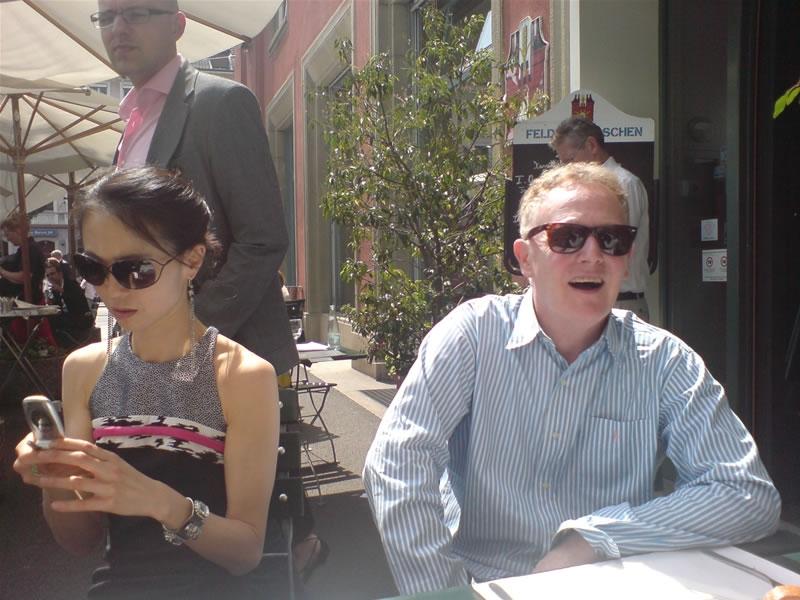

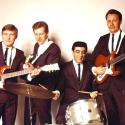

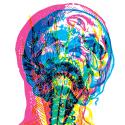









Add comment